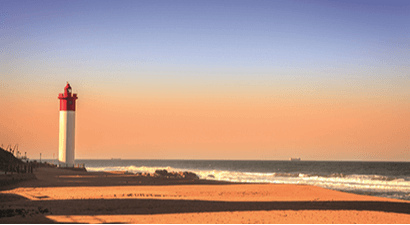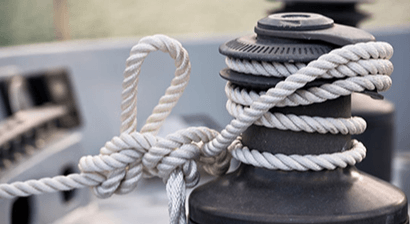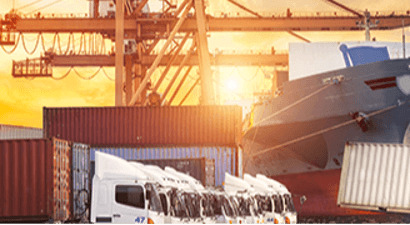International Transport, Trade & Energy, Recognition of Foreign Insolvency or Debt Standstill Orders in South Africa
The shipping press have again recently reported and commented on the steady stream of Asian and Western shipping companies that have sought bankruptcy or debt standstill protection from the courts in recent months, said to be victims of weak freight rates and dwindling cash reserves. But they comment that the expected surge in corporate shipping failures has yet to occur, despite mounting losses and the prospect of lower freight and charter rates this year.
Part of the reason, according to finance and restructuring experts, is an unwillingness by banks to seize ships or force firms into bankruptcy, especially with the current market conditions and ship values falling to pre-boom levels. The commentary is that while many traditional ship financing banks have either scaled back or stopped lending to shipping companies, it seems that to date at least, they have been reluctant to enforce loan defaults. They have appeared to take the view that they are better off rescheduling debt with existing client operators, rather than either entering into possession to operate the ships themselves or through managers or, foreclosing and selling the ships.
The suggestion is that a lot of banks can't afford to take a hit, especially with the Euro debt crisis and liquidity rules impacting on their operations. To give room however to move and reschedule the debts while allowing the shipping lines to carry on earning money to service even the extended loan periods, they need protection from trade and other creditors who cannot afford to be so forgiving as the banks, if they themselves are to continue trading. That of course also applies to other shipping companies whose own existence depends on arrear or halted charter hires being paid up to date and continuing charter commitments being honoured.
So it is that a question increasingly posed to us is whether an order made by, for example, a court in Singapore, Korea, Japan, Italy, the USA or England declaring that all legal proceedings or arrests are stayed or forbidden in any jurisdiction, pending the reorganisation process, or simply "banning" all legal actions being brought against the debtor, will be recognised by a South African court and whether this will be a bar to seeking the arrest of a ship or asset belonging to the debtor company or, more often, an "associated ship" as defined in the South African Admiralty Jurisdiction Regulation Act No. 105 of 1983 as amended ("the Admiralty Act").
While South Africa is a signatory to the UNCITRAL Model Law on Cross Border Insolvency and on 8 December 2000 promulgated the Cross Border Insolvency Act 42 of 2000 and came into effect in 2003, no countries have been "designated" in accordance with a section of the Act/Model Law, whose insolvency or bankruptcy orders would be reciprocally recognised in this country, so the Act is toothless and cannot be invoked to enforce any such order of a foreign court.
As such until countries are designated, the courts here are unable to invoke the provisions of that Act to recognise orders of a foreign bankruptcy court, to apply a debt standstill or automatic stay worldwide.
There is legislation recently passed (the new Companies Act and the Business Rescue regime it introduced) which has provisions equivalent to a debt standstill or automatic stay, but these provisions relate solely to South African companies. However in a recent matter, referred to below (related to OSG), the applicants drew attention to these provisions to illustrate that recognising a debt standstill or automatic stay of proceedings in the interest of a reorganisation of a company's affairs in the interests of creditors, was not a foreign concept in our law and should be recognised under the common law principles to be applied in an application for recognition and enforcement of a foreign court's order to that effect..
The common law position is simply that a liquidation, judicial management, debt standstill, “reorganization” or any similar order in respect of a foreign registered company, does not in itself have any judicial status in South Africa and is not a bar to an arrest or attachment of a vessel under the Admiralty Act (or under the parochial, non-Admiralty procedure).
Equally a foreign liquidator (or similar "representative") has no locus standi to take movables in South Africa belonging to the insolvent company, into his or her custody on behalf of the estate or to sue or defend actions for the company under provisional or final liquidation/bankruptcy – unless he or she has applied to the South African court for recognition and for the powers vested in him or her under the foreign bankruptcy (or similar) domestic law of the country of incorporation and as might have been ordered by the courts of that country seized of the proceedings properly brought there, to be enforced and acknowledged in this jurisdiction.[1]
This is evident from the decision in Liquidator Rhodesian Plastics (Pvt) Ltd v Elvinco Plastic Products (Pty) Ltd 1959 (1) SA 868 (C), in which it was stated that where a foreign representative such as an executor, liquidator or receiver wishes to deal with assets in South Africa in his or her representative capacity and by virtue of his or her foreign authorisation, he or she must first be recognised in his or her appointment by a court of law or person of competent jurisdiction in South Africa, before he or she is entitled to act.
In the same decision, and quoting Innes CJ in African Farms Limited 1906 T.S. vol 1 373, it was stated that the recognition accorded to such foreign representative constitutes a declaration that the representative is entitled to deal with the assets as if they were within the jurisdiction of the authority which appointed him or her, subject only to such conditions that the court may impose for the protection of local creditors or in the recognition of the requirements of local laws (our emphasis).
The power of the South African courts to make an order recognizing the locus standi of the foreign liquidator or trustee, is thus said to arise from the inherent and unfettered power (subject to jurisdictional considerations) of the High Court and under the general concept of the comity of nations, subject to and unless such recognition would be against public policy or to the prejudice of vested rights of local creditors of the debtor company.
Over the years there have been a number of non-Admiralty insolvency matters where a "movable" falling into an insolvent foreign estate was found in South Africa and the trustee or liquidator sought the assistance of the South African court to take possession of the moveable in the interests of the creditors. It appears from the case law that the (parochial) courts, in an application for recognition of a foreign liquidator, will consider comity, convenience and equity. Regrettably the law is not consistently applied which has resulted in much uncertainty in the parochial courts .
However, maritime creditors are afforded "special protection", in respect of the arrest and judicial sale of a maritime movable such as a ship or cargo, by the provisions of sections 10 and 11 of the Admiralty Act. Section 10 provides that:
"Any property arrested in respect of a maritime claim or any security given in respect of any property, or the proceeds of any property sold in execution or under an order of a court in the exercise of its admiralty jurisdiction, shall not, except as provided in section 11(13), vest in a trustee in insolvency and shall not form part of the assets to be administered by a liquidator or judicial manager of the owner of the property or of any other person who might otherwise be entitled to such property, security or proceeds, and no proceedings in respect of such property, security or proceeds, or the claim in respect of which that property was arrested, shall be stayed by or by reason of any sequestration, winding-up or judicial management with respect to that owner or person."
In terms of section 10 and its interpretation by the South African courts, the effect on an arrest of a vessel before the commencement of liquidation, judicial management or insolvency proceedings, is that the property under arrest does not fall under the powers with regard to assets to be administered by such a judicial manager or trustee or liquidator. Similarly, a vessel arrested before an application is brought for the recognition of a foreign liquidator or trustee, will be excluded from the insolvent estate pursuant to section 10 of the Admiralty Act.
Hofmeyr confirms this in his book Admiralty Jurisdiction Law and Practice in South Africa (Juta, 2006), in which he writes, in relation to section 10, that any property arrested or attached or security furnished or the proceeds of any property sold in execution or under an order of a court in the exercise of its admiralty jurisdiction, will not vest in a trustee or judicial manager. Such property will have to be dealt with in terms of the Admiralty Act and distributed according to the ranking prescribed in section 11 of the Admiralty Act.
The critics of an "open policy" on recognition of a foreign liquidation in Admiralty matters, question why the "special protection" afforded the maritime creditor by the provisions of sections 10 and 11 of the Admiralty Act, should be imperiled by the order of a foreign bankruptcy court prohibiting an arrest of a ship (or any asset) in effect anywhere in the world – especially a ship to which (for example) a necessaries man has supplied and granted credit on the strength of his belief that the ship would stand as security for his claim.
Until 2011, there were no reported “maritime” matters, and certainly no orders, where in advance of a ship calling here, a general prohibition against arresting in rem or otherwise was made.
However, in 2011 the joint receivers in the estate of Korea Line Corporation ("KLC"), approached the KwaZulu-Natal High Court in Durban for recognition as the duly appointed receivers (in terms of the laws of the Republic of Korea) and in effect an interdict against anyone arresting KLC assets.
Save for service of the papers on a ships agency company in Richards Bay, which was owed a nominal amount by KLC, the application was moved ex parte. The order, which was granted on terms, was served on the ships agency company concerned and published in two daily newspapers.
The various creditors of KLC who had intended to arrest vessels to obtain security or enforce arbitration awards previously obtained, decided not to challenge the order as they considered that it would be too expensive.
As such, the order stood as a type of "non-binding precedent, albeit that it was believed it had a number of aspects which could be distinguished, challenged or opposed.
Then in December 2012 in another ex parte application before the Kwazulu Natal High Court in Durban, Overseas Shipholding Group Inc ("OSG") and 180 associated and allied entities sought and were granted an order recognizing the Order granted at the instance of the same Applicants by the US Bankruptcy Court, Deleware on 15th November 2012, a copy of which order was annexed to the Order of the Durban court.
It went on to state that the provisions of the US (Chapter 11) order and in particular the automatic Stay and related provisions contained in Section 362 of the US Bankruptcy Code shall apply and be of full force and effect in the Republic (note – throughout the various divisions of the High Court, not only in the Kwazulu Natal Division, which in itself is unique) in regard to the Applicants and any assets situated in the Republic and/or its territorial waters at any time.
A stay against the commencement or continuation of any proceedings, including the issuance of any action or processes against any assets, in particular any vessels, was granted (in other words, an interdict against any attachment or arrest). The order was to be served on all Registrars of the courts of the various divisions and to be advertised in various newspapers.
Finally in a last gasp recognition of the entrenched rights of creditors and the concept of that every party must be afforded an opportunity to be heard, any interested party was given leave to set aside the order upon not less than 48 hours notice to the Applicants local attorneys.
It remains to be seen if any creditors will take up this invitation.
At the time of writing this news article, we are aware that there are other companies considering applying for recognition of intended debt standstill, freezing or bankruptcy orders and it will be interesting to see whether the courts will continue to recognise the orders, despite the Cross Border Insolvency Act still not being enforceable in practical terms, or how long it will take for Government to designate countries to which the Act will apply.
In summary then:
- the fact that a debtor might seek (for example) Chapter 11 protection in the USA or similar protection from its creditors elsewhere, will not of itself protect its assets from arrest in South Africa;
- the trustee (or equivalent) is required to apply to the South African court for recognition as such, and the extension or application of the “debt standstill” (or similar) to assets in South Africa;
- in the event of a creditor having claims against vessels likely to call at a South African port which would be susceptible to arrest, such an application should be opposed if made, assuming of course that notice is given, and if not opposed and an order is made, the creditors would be well advised to challenge the same as soon as it becomes known, with a view to entrenching the rights of creditors under section 10 of the Admiralty Act, in terms of which their claims have precedence to the claims of any liquidator (or similar) in insolvency;
- Vessels arrested before recognition proceedings are commenced in South Africa are excluded from the insolvent estate and may be dealt with in terms of section 11 of the Admiralty Act which provides for a special ranking of maritime creditors in the event of the vessel being sold by judicial sale order.
[1] The situation is different in the case of an individual or partnership where the insolvent’s assets vest in his or her trustee pursuant to a sequestration order of a court where the insolvent is domiciled. Such trustee is able to deal with the insolvent’s movable assets without first obtaining a recognition order in South Africa. If the sequestration order was made by a court other than the insolvent’s domicile, such trustee must apply for recognition in South Africa before he or she can deal with the movable assets.





